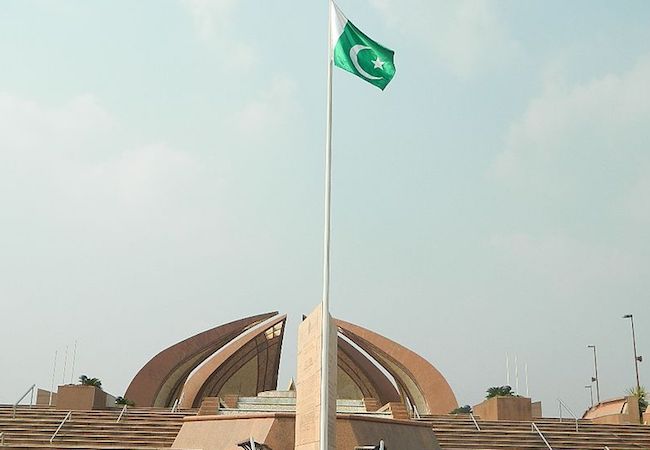
By Saima Ali
The International Atomic Energy Agency (IAEA) describes nuclear security as prevention of, detection of, and response to, criminal or intentional unauthorized acts involving or directed at nuclear material, other radioactive material, associated facilities, or associated activities. Pakistan has always been vigorously participating and contributing in the IAEA efforts to promote nuclear, radiation, transport and waste safety and security. As a member of various IAEA safety standard committees, commissions and other related forums/networks, Pakistan Nuclear Regulatory Authority (PNRA) is working to endorse nuclear safety and security.
Pakistan has to ensure the security of nuclear material, other radioactive material, associated facilities and activities under its jurisdiction. A comprehensive nuclear security regime is therefore, much more than the physical aspects of nuclear security. Pakistan’s national nuclear security is built on following three pillars: Legislative and regulatory framework and administrative systems and measures governing the security of nuclear material, other radioactive material, associated facilities and activities Institutions and organizations within the State responsible for ensuring the implementation of the legislative and regulatory framework and administrative systems of nuclear security Nuclear security systems and measures meant for the prevention, detection and response to nuclear security events
Additionally, Pakistan contributes in the activities of International Nuclear Event Scale (INES) and International Reporting System (IRS). Pakistan voluntarily adheres to IAEA’s “Code of Conduct on Safety and Security of Sealed Radioactive Sources.” Pakistan also takes part in combined international projects with IAEA, United Nations Scientific Committee on Effects of Atomic Radiation (UNSCEAR), and International System of Occupational Exposure (ISOE) to improve the national infrastructure for radiation protection. It also take part in IAEA programs for bringing up to date Basic Safety Standards and radiation protection practices. Pakistan is member of several IAEA’s committees on safety and security including Advisory Group on Nuclear Security (AdSec) and Nuclear Security Guidance Committee (NSGC).
Earlier this month Pakistan Foreign office stated that it had created a broad and effective national nuclear security regime which was at par with the latest international standards and guidelines. The Foreign Office in a statement on evening of the second Ministerial Nuclear Security Conference of the International Atomic Energy Agency (IAEA), being held in Vienna on December 5-6, said the regime was based on an extensive legislative and regulatory framework governing the security of nuclear material, radioactive substances, associated facilities and activities. This is backed by strong institutions and organizations with the indispensable authorities, resources and trained manpower for effective implementation.
According to the statement, “Pakistan keeps its nuclear security systems and measures under constant review and continues to invest in relevant technologies and human resources,” Pakistan had established an independent nuclear regulatory authority with wide-ranging regulatory and inspection mandate. Pakistan’s nuclear security arrangements were being recognized at the international level by several high ranking officials and experts.
Pakistan has been an active participant in the Nuclear Security Summit (NSS) process aimed at creating awareness at the leadership level about the need to strengthen global nuclear security efforts. Also Pakistan joined GICNT Global Initiative to Combat Nuclear Terrorism program in 2007 and has been proactively participating in its various activities for sharing and learning of international best practices. Pakistan voluntarily participates in IAEA’s ITDB and continues to support its objectives.
The IAEA director general, Yukiya Amano, conveyed his gratitude for Pakistan Centre of Excellence on Nuclear Security (PCENS), during inaugural address at the IAEA Nuclear Security Conference in Vienna on December 5, 2016. IAEA — the UN nuclear supervisory body said a week before, that more than 100 countries will have to meet higher standards on the protection of nuclear facilities and materials from now onwards. For doing so, of course one has to coerce themselves with certain sets of obligations that could be in form of treaties, international bindings, either legal or self imposed. As a responsible nuclear weapon state, Pakistan has taken exhaustive measures for enhancing its nuclear security. Through sheer hard work and diligent efforts, Pakistan has established a comprehensive and robust nuclear security regime. Pakistan is confident of its ability to counter all kinds of nuclear security threats but is not complacent.




